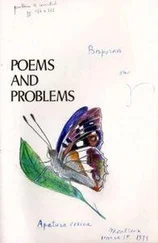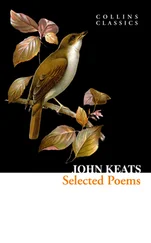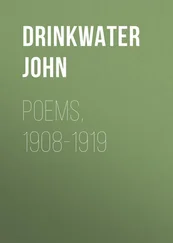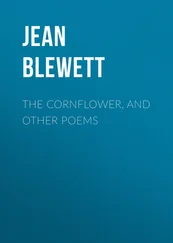John Keats - Poems 1817
Здесь есть возможность читать онлайн «John Keats - Poems 1817» весь текст электронной книги совершенно бесплатно (целиком полную версию без сокращений). В некоторых случаях можно слушать аудио, скачать через торрент в формате fb2 и присутствует краткое содержание. Год выпуска: 2005, Жанр: Поэзия, на английском языке. Описание произведения, (предисловие) а так же отзывы посетителей доступны на портале библиотеки ЛибКат.
- Название:Poems 1817
- Автор:
- Жанр:
- Год:2005
- ISBN:нет данных
- Рейтинг книги:4 / 5. Голосов: 1
-
Избранное:Добавить в избранное
- Отзывы:
-
Ваша оценка:
- 80
- 1
- 2
- 3
- 4
- 5
Poems 1817: краткое содержание, описание и аннотация
Предлагаем к чтению аннотацию, описание, краткое содержание или предисловие (зависит от того, что написал сам автор книги «Poems 1817»). Если вы не нашли необходимую информацию о книге — напишите в комментариях, мы постараемся отыскать её.
Poems 1817 — читать онлайн бесплатно полную книгу (весь текст) целиком
Ниже представлен текст книги, разбитый по страницам. Система сохранения места последней прочитанной страницы, позволяет с удобством читать онлайн бесплатно книгу «Poems 1817», без необходимости каждый раз заново искать на чём Вы остановились. Поставьте закладку, и сможете в любой момент перейти на страницу, на которой закончили чтение.
Интервал:
Закладка:
Lover of loneliness, and wandering,
Of upcast eye, and tender pondering!
Thee must I praise above all other glories
That smile us on to tell delightful stories.
For what has made the sage or poet write
But the fair paradise of Nature's light?
In the calm grandeur of a sober line,
We see the waving of the mountain pine;
And when a tale is beautifully staid,
We feel the safety of a hawthorn glade:
When it is moving on luxurious wings,
The soul is lost in pleasant smotherings:
Fair dewy roses brush against our faces,
And flowering laurels spring from diamond vases;
O'er head we see the jasmine and sweet briar,
And bloomy grapes laughing from green attire;
While at our feet, the voice of crystal bubbles
Charms us at once away from all our troubles:
So that we feel uplifted from the world,
Walking upon the white clouds wreath'd and curl'd.
So felt he, who first told, how Psyche went
On the smooth wind to realms of wonderment;
What Psyche felt, and Love, when their full lips
First touch'd; what amorous, and fondling nips
They gave each other's cheeks; with all their sighs,
And how they kist each other's tremulous eyes:
The silver lamp,—the ravishment,—the wonder—
The darkness,—loneliness,—the fearful thunder;
Their woes gone by, and both to heaven upflown,
To bow for gratitude before Jove's throne.
So did he feel, who pull'd the boughs aside,
That we might look into a forest wide,
To catch a glimpse of Fawns, and Dryades
Coming with softest rustle through the trees;
And garlands woven of flowers wild, and sweet,
Upheld on ivory wrists, or sporting feet:
Telling us how fair, trembling Syrinx fled
Arcadian Pan, with such a fearful dread.
Poor nymph,—poor Pan,—how he did weep to find,
Nought but a lovely sighing of the wind
Along the reedy stream; a half heard strain,
Full of sweet desolation—balmy pain.
What first inspired a bard of old to sing
Narcissus pining o'er the untainted spring?
In some delicious ramble, he had found
A little space, with boughs all woven round;
And in the midst of all, a clearer pool
Than e'er reflected in its pleasant cool,
The blue sky here, and there, serenely peeping
Through tendril wreaths fantastically creeping.
And on the bank a lonely flower he spied,
A meek and forlorn flower, with naught of pride,
Drooping its beauty o'er the watery clearness,
To woo its own sad image into nearness:
Deaf to light Zephyrus it would not move;
But still would seem to droop, to pine, to love.
So while the Poet stood in this sweet spot,
Some fainter gleamings o'er his fancy shot;
Nor was it long ere he had told the tale
Of young Narcissus, and sad Echo's bale.
Where had he been, from whose warm head out-flew
That sweetest of all songs, that ever new,
That aye refreshing, pure deliciousness,
Coming ever to bless
The wanderer by moonlight? to him bringing
Shapes from the invisible world, unearthly singing
From out the middle air, from flowery nests,
And from the pillowy silkiness that rests
Full in the speculation of the stars.
Ah! surely he had burst our mortal bars;
Into some wond'rous region he had gone,
To search for thee, divine Endymion!
He was a Poet, sure a lover too,
Who stood on Latmus' top, what time there blew
Soft breezes from the myrtle vale below;
And brought in faintness solemn, sweet, and slow
A hymn from Dian's temple; while upswelling,
The incense went to her own starry dwelling.
But though her face was clear as infant's eyes,
Though she stood smiling o'er the sacrifice,
The Poet wept at her so piteous fate,
Wept that such beauty should be desolate:
So in fine wrath some golden sounds he won,
And gave meek Cynthia her Endymion.
Queen of the wide air; thou most lovely queen
Of all the brightness that mine eyes have seen!
As thou exceedest all things in thy shine,
So every tale, does this sweet tale of thine.
O for three words of honey, that I might
Tell but one wonder of thy bridal night!
Where distant ships do seem to show their keels,
Phoebus awhile delayed his mighty wheels,
And turned to smile upon thy bashful eyes,
Ere he his unseen pomp would solemnize.
The evening weather was so bright, and clear,
That men of health were of unusual cheer;
Stepping like Homer at the trumpet's call,
Or young Apollo on the pedestal:
And lovely women were as fair and warm,
As Venus looking sideways in alarm.
The breezes were ethereal, and pure,
And crept through half closed lattices to cure
The languid sick; it cool'd their fever'd sleep,
And soothed them into slumbers full and deep.
Soon they awoke clear eyed: nor burnt with thirsting,
Nor with hot fingers, nor with temples bursting:
And springing up, they met the wond'ring sight
Of their dear friends, nigh foolish with delight;
Who feel their arms, and breasts, and kiss and stare,
And on their placid foreheads part the hair.
Young men, and maidens at each other gaz'd
With hands held back, and motionless, amaz'd
To see the brightness in each others' eyes;
And so they stood, fill'd with a sweet surprise,
Until their tongues were loos'd in poesy.
Therefore no lover did of anguish die:
But the soft numbers, in that moment spoken,
Made silken ties, that never may be broken.
Cynthia! I cannot tell the greater blisses,
That follow'd thine, and thy dear shepherd's kisses:
Was there a Poet born?—but now no more,
My wand'ring spirit must no further soar.—
SPECIMEN
OF AN
INDUCTION TO A POEM.
Lo! I must tell a tale of chivalry;
For large white plumes are dancing in mine eye.
Not like the formal crest of latter days:
But bending in a thousand graceful ways;
So graceful, that it seems no mortal hand,
Or e'en the touch of Archimago's wand,
Could charm them into such an attitude.
We must think rather, that in playful mood,
Some mountain breeze had turned its chief delight,
To show this wonder of its gentle might.
Lo! I must tell a tale of chivalry;
For while I muse, the lance points slantingly
Athwart the morning air: some lady sweet,
Who cannot feel for cold her tender feet,
From the worn top of some old battlement
Hails it with tears, her stout defender sent:
And from her own pure self no joy dissembling,
Wraps round her ample robe with happy trembling.
Sometimes, when the good Knight his rest would take,
It is reflected, clearly, in a lake,
With the young ashen boughs, 'gainst which it rests,
And th' half seen mossiness of linnets' nests.
Ah! shall I ever tell its cruelty,
When the fire flashes from a warrior's eye,
Интервал:
Закладка:
Похожие книги на «Poems 1817»
Представляем Вашему вниманию похожие книги на «Poems 1817» списком для выбора. Мы отобрали схожую по названию и смыслу литературу в надежде предоставить читателям больше вариантов отыскать новые, интересные, ещё непрочитанные произведения.
Обсуждение, отзывы о книге «Poems 1817» и просто собственные мнения читателей. Оставьте ваши комментарии, напишите, что Вы думаете о произведении, его смысле или главных героях. Укажите что конкретно понравилось, а что нет, и почему Вы так считаете.












